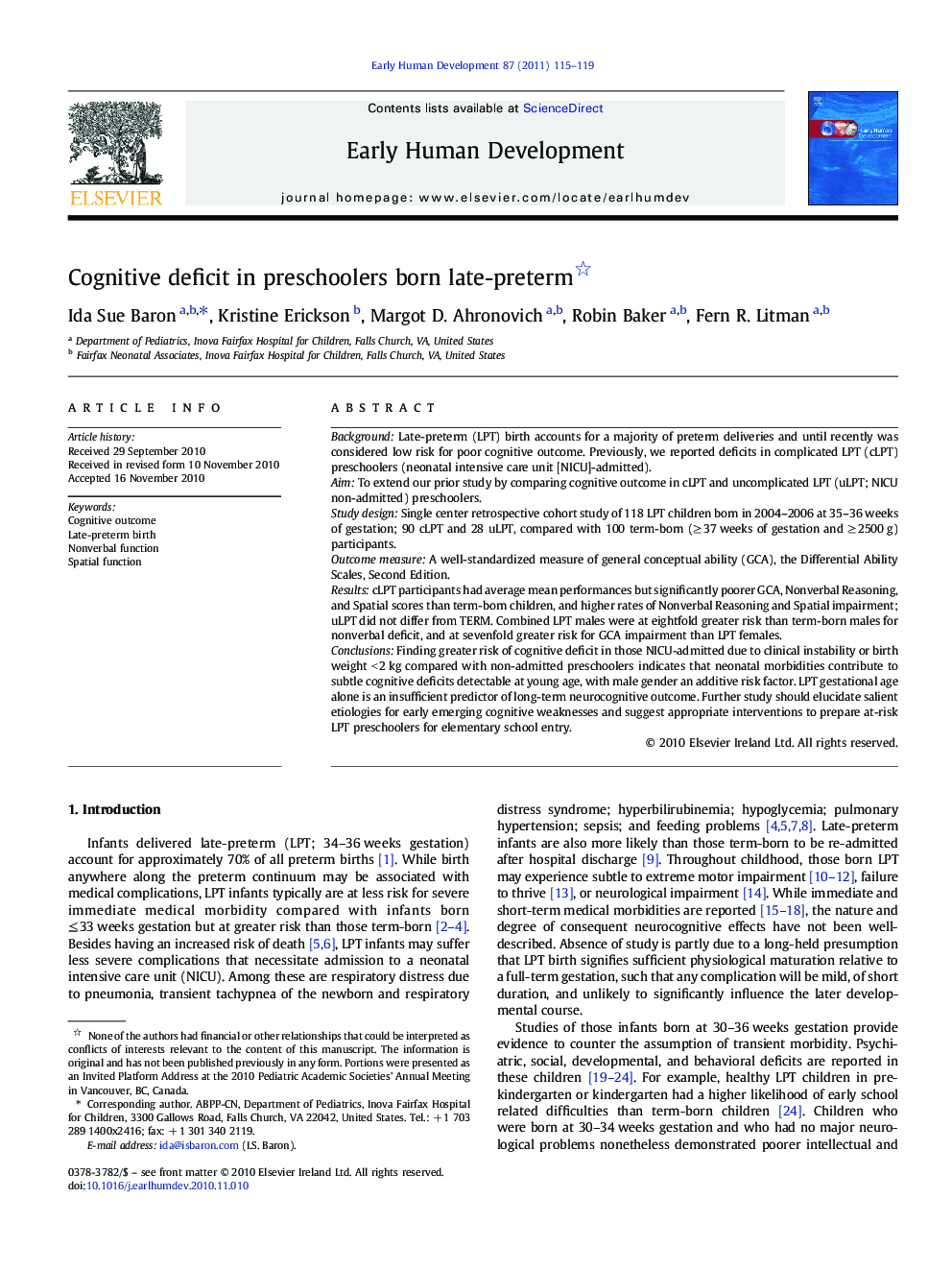| Article ID | Journal | Published Year | Pages | File Type |
|---|---|---|---|---|
| 3917233 | Early Human Development | 2011 | 5 Pages |
BackgroundLate-preterm (LPT) birth accounts for a majority of preterm deliveries and until recently was considered low risk for poor cognitive outcome. Previously, we reported deficits in complicated LPT (cLPT) preschoolers (neonatal intensive care unit [NICU]-admitted).AimTo extend our prior study by comparing cognitive outcome in cLPT and uncomplicated LPT (uLPT; NICU non-admitted) preschoolers.Study designSingle center retrospective cohort study of 118 LPT children born in 2004–2006 at 35–36 weeks of gestation; 90 cLPT and 28 uLPT, compared with 100 term-born (≥ 37 weeks of gestation and ≥ 2500 g) participants.Outcome measureA well-standardized measure of general conceptual ability (GCA), the Differential Ability Scales, Second Edition.ResultscLPT participants had average mean performances but significantly poorer GCA, Nonverbal Reasoning, and Spatial scores than term-born children, and higher rates of Nonverbal Reasoning and Spatial impairment; uLPT did not differ from TERM. Combined LPT males were at eightfold greater risk than term-born males for nonverbal deficit, and at sevenfold greater risk for GCA impairment than LPT females.ConclusionsFinding greater risk of cognitive deficit in those NICU-admitted due to clinical instability or birth weight < 2 kg compared with non-admitted preschoolers indicates that neonatal morbidities contribute to subtle cognitive deficits detectable at young age, with male gender an additive risk factor. LPT gestational age alone is an insufficient predictor of long-term neurocognitive outcome. Further study should elucidate salient etiologies for early emerging cognitive weaknesses and suggest appropriate interventions to prepare at-risk LPT preschoolers for elementary school entry.
